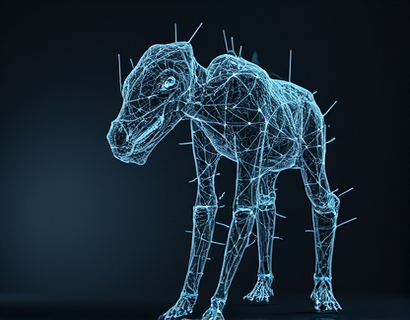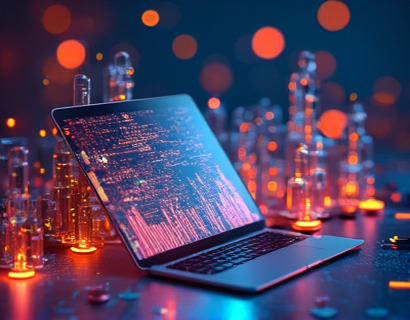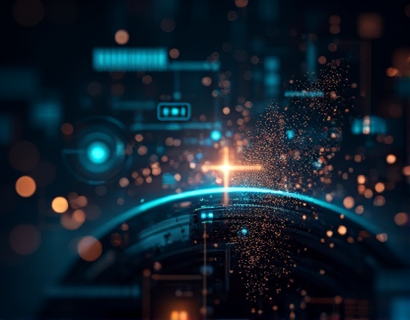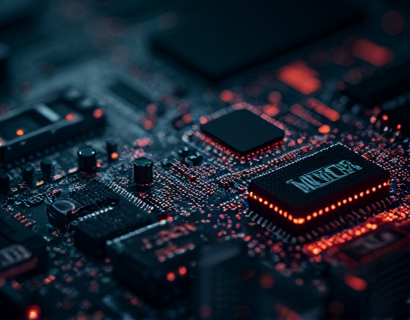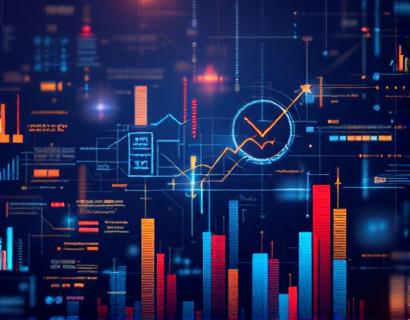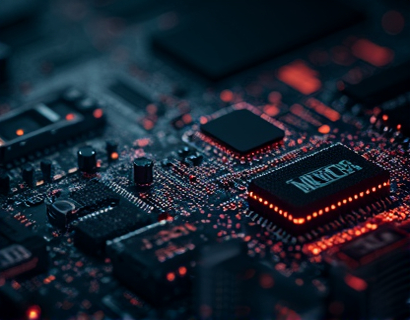Revolutionizing Productivity: The Synergy of Crypto and AI
The intersection of cryptocurrency and artificial intelligence (AI) is giving rise to transformative technologies that are redefining productivity for tech enthusiasts and early adopters. This article delves into how a pioneering platform, leveraging the power of both crypto and AI, is simplifying and enhancing daily tasks for those at the forefront of technological innovation. By merging these two cutting-edge fields, we are witnessing the creation of an advanced ecosystem that not only streamlines workflows but also opens up new possibilities for efficiency and creativity.
Understanding the Basics: Crypto and AI
To fully appreciate the impact of this synergy, it's essential to understand the fundamental concepts of cryptocurrency and artificial intelligence. Cryptocurrency, often referred to as digital or virtual currency, operates on a decentralized network known as a blockchain. This technology ensures security, transparency, and immutability, making it an ideal foundation for various applications beyond mere transactions. On the other hand, AI refers to the simulation of human intelligence processes by machines, particularly computer systems. These processes include learning, reasoning, and self-correction, enabling AI to perform tasks that traditionally required human intervention.
The Emergence of Crypto and AI Synergy
The convergence of crypto and AI is not merely a coincidence but a natural evolution driven by the complementary strengths of both technologies. Cryptocurrency provides a secure and decentralized infrastructure, while AI brings intelligent automation and advanced data analysis. When combined, they create a powerful platform capable of addressing complex challenges and enhancing productivity in unprecedented ways. This synergy is particularly appealing to tech-savvy individuals who are eager to explore and leverage the latest advancements in technology.
Enhanced Security and Trust
One of the most significant benefits of integrating crypto and AI is the enhanced security and trust it offers. Blockchain technology ensures that transactions and data are tamper-proof, providing a high level of security that is crucial for sensitive operations. AI, with its advanced algorithms, can detect and prevent fraudulent activities, further fortifying the system. For early adopters, this means a more secure environment to conduct their daily tasks, knowing that their data and transactions are protected by state-of-the-art security measures.
Automated Workflows and Efficiency
AI-driven automation is a game-changer for productivity. By automating repetitive and time-consuming tasks, AI allows users to focus on more strategic and creative aspects of their work. In the context of a crypto and AI platform, this automation extends to financial management, data analysis, and even content creation. For instance, smart contracts can automate contract execution and enforcement, reducing the need for intermediaries and speeding up processes. AI algorithms can analyze market trends, optimize resource allocation, and provide actionable insights, all of which contribute to a more efficient workflow.
Personalized User Experiences
The integration of AI in a crypto-based platform enables the creation of personalized user experiences. Machine learning algorithms can analyze user behavior and preferences, tailoring the platform's offerings to individual needs. This personalization extends to recommendation systems that suggest relevant apps and services based on user activity, making it easier for early adopters to discover and utilize tools that enhance their productivity. The platform can also adapt to user feedback, continuously improving and refining its services to better meet user expectations.
Decentralized Applications (DApps)
Decentralized applications, or DApps, are a cornerstone of the crypto and AI ecosystem. These applications run on a blockchain network and leverage AI to provide decentralized services that are resistant to censorship and control. DApps can range from decentralized finance (DeFi) platforms to social media and collaboration tools. For early adopters, DApps offer a new paradigm of internet usage, where users have more control over their data and less reliance on centralized entities. AI enhances these applications by providing intelligent features such as predictive analytics, natural language processing, and advanced user interfaces.
Tokenization of Assets and Incentives
Tokenization, a process enabled by blockchain technology, allows for the creation of digital tokens that represent ownership or access to resources. In the context of a crypto and AI platform, tokens can be used to incentivize user engagement and participation. For example, users can earn tokens for contributing valuable content, participating in community governance, or completing tasks. These tokens can then be used within the ecosystem to access premium features, purchase services, or even traded on decentralized exchanges. AI can optimize the token distribution and reward mechanisms, ensuring fairness and maximizing user motivation.
Data Privacy and Ownership
Data privacy is a critical concern in the digital age, and the combination of crypto and AI offers robust solutions. Blockchain's decentralized nature ensures that user data is not stored in a single vulnerable point, reducing the risk of data breaches. AI can further enhance privacy by implementing advanced encryption techniques and zero-knowledge proofs, allowing users to verify transactions without revealing sensitive information. This synergy empowers users to maintain control over their data, deciding who can access it and for what purpose. Early adopters benefit from a system that prioritizes their privacy and data ownership.
Scalability and Interoperability
Scalability and interoperability are key challenges in the crypto space, and AI plays a crucial role in addressing these issues. AI algorithms can optimize network performance, manage resource allocation, and predict and mitigate bottlenecks. This ensures that the platform can handle a growing number of users and transactions without compromising speed or reliability. Interoperability, the ability of different blockchain systems to communicate and work together, is also enhanced by AI. Smart contracts and cross-chain protocols, powered by AI, facilitate seamless interactions between various crypto and AI applications, creating a more cohesive and user-friendly ecosystem.
Case Studies and Real-World Applications
To illustrate the practical benefits of this crypto and AI synergy, let's explore a few real-world applications. In the realm of project management, an AI-driven DApp can automate task assignments, track progress, and ensure compliance with smart contracts. Users can receive real-time updates and insights, all while maintaining control over their data. In the financial sector, a DeFi platform powered by AI can offer automated trading, risk management, and personalized investment advice, all within a secure and transparent environment. For content creators, a decentralized social media platform can use AI to curate and promote high-quality content, ensuring that creators are fairly compensated through token rewards.
Challenges and Considerations
While the potential of crypto and AI is immense, there are challenges that need to be addressed. Regulatory uncertainty remains a significant hurdle, as governments worldwide are still grappling with how to regulate these emerging technologies. Early adopters must stay informed about regulatory developments and ensure compliance to avoid legal issues. Additionally, the technical complexity of blockchain and AI can be daunting for some users. Education and user-friendly interfaces are essential to make these technologies accessible to a broader audience. Security, while enhanced, is not foolproof, and users must remain vigilant against potential threats.
Future Prospects
The future of crypto and AI is bright, with numerous opportunities for innovation and growth. As more developers and businesses recognize the potential of this synergy, we can expect to see more sophisticated and user-centric applications. The integration of quantum computing, for instance, could further enhance the capabilities of AI, leading to even more advanced and efficient solutions. The combination of crypto and AI is not just a trend but a fundamental shift in how we approach technology and productivity. For early adopters, embracing this synergy can provide a competitive edge and open doors to new possibilities.
In conclusion, the merging of cryptocurrency and artificial intelligence is transforming productivity for tech enthusiasts and early adopters. By leveraging the strengths of both technologies, a pioneering platform is creating an advanced ecosystem that simplifies and enhances daily tasks. From enhanced security and automated workflows to personalized experiences and decentralized applications, the benefits are manifold. As the field continues to evolve, those who embrace these innovations will be well-positioned to thrive in the digital landscape of the future.



